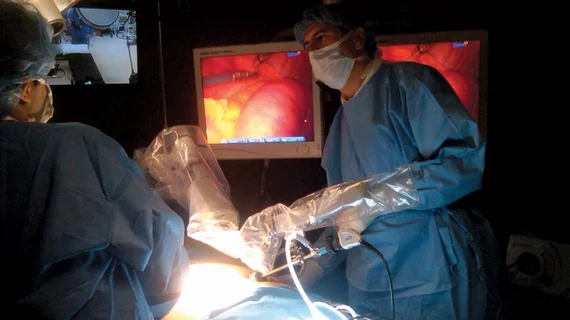Bariatric surgery associated with lower risk of death and cardiovascular disease
Bariatric surgery can help obese patients lower their risk of all-cause and cardiovascular mortality, according to a new systematic review and meta-analysis published in European Heart Journal.[1]
“Treatment of obesity is difficult, and initially based on lifestyle change, diet, and increased physical activity,” wrote lead author Sophie L. van Veldhuisen, MD, of the department of surgery at Rijnstate Hospital Arnhem in the Netherlands, and colleagues. “To achieve a sustained reduction of 5-10% of total body weight is difficult if not impossible in most patients. Pharmacological treatment of obesity can be considered, but only a few drugs have been approved, because of side-effects and safety concerns. Bariatric (or metabolic) surgery is an accepted treatment for patients with morbid obesity or severe obesity in presence of obesity-associated comorbidities.”
The study’s authors explored data from 39 different studies, totaling more than 265,000 patients. While some of the studies were smaller, tracking small cohorts of fewer than 200 patients, others included tens of thousands of obese patients. The minimum follow-up period for any study was five years.
Overall, the group found, bariatric surgery was associated with significant improvements in a patient’s risk of all-cause mortality, cardiovascular mortality, heart failure, myocardial infarction and stroke. There was not, however, a significant improvement in the risk of atrial fibrillation.
The team did note that there were no randomized controlled trials included in their analysis.
“This is understandable, since the average age of patients undergoing bariatric surgery is 40 years, and the onset of CV disease in patients below the age of 50 is relatively low,” the authors wrote. “In other words, despite a probably significant and clinically relevant patient benefit, randomized controlled trials that examined the effect of bariatric surgery on CV disease outcome would require long-term follow-up.”
Related Cardiac Surgery Content:
'We help everyone who needs it': Heart hospital in Ukraine treating wounded civilians
War in Ukraine has not stopped congenital heart surgeries in Kyiv
Young patient recovering after world’s first combination heart transplant and thymus procedure
Pig heart transplant patient dies 2 months after historic procedure
Reference:

